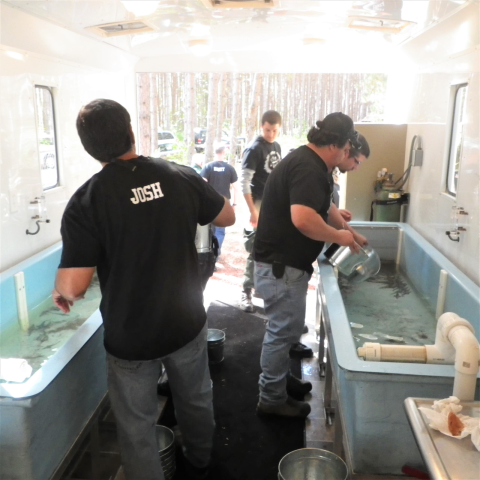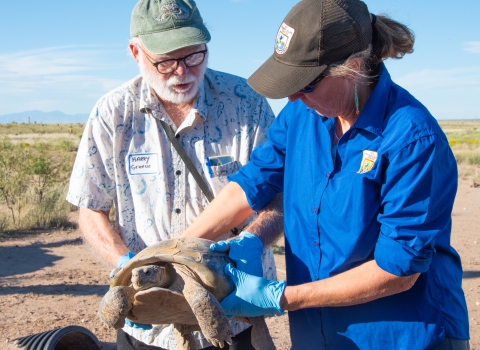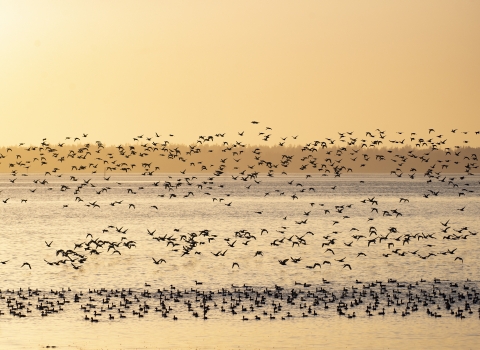The conservation work of the Green Bay Fish and Wildlife Conservation Office spans a wide variety of space, time, and place, from the depths of Lake Michigan to the spring pond headwaters that feed it. The nature of this work requires partnerships and collaboration in order to be effective, and at the center of our partnerships are our Tribal nations. We recognize their importance in the history of the basin's natural resources and how this history is a critical component to future sustainability if these aquatic resources.
The Lake Michigan basin is home to over a dozen Tribes, both federally and state recognized, and our office is committed to working alongside our Tribal partners to realize their conservation goals. We have a number of projects with our Tribal partners, ranging from road stream crossing inventories and monitoring to larval lake sturgeon drift collections, aquatic habitat restoration, lake trout rehabilitation work, and lake whitefish science to name just a few. One project we’re excited for in particular is the Lake Winnebago wild rice initiative, led by our newest Tribal partner, the Brothertown Indian Nation.
As part of expanding our commitment to our Tribal partners, last fall the Green Bay Fish and Wildlife Conservation Office reached out to Tribes within the Lake Michigan basin to see what conservation goals and projects we could help support. The Brothertown Indian Nation of Fond Du Lac, Wisconsin, was one such Tribe and indicated that their newly formed Environment and Natural Resources Department would like to explore a partnership. Through several constructive, relationship-building meetings, where we learned about their heritage and natural resource concerns, we were invited to join their Lake Winnebago wild rice collaborative. This project brings a large number of Wisconsin Tribes and other state, federal, and non-profit partners to the table in order to have a wide breadth of knowledge and increase the likelihood of project success. We are looking forward to continuing and expanding our work with Brothertown and other Tribal partners in the Lake Michigan basin to advance conservation for all.
We have several long-term Tribal partnerships across the basin for which we have worked on highly important issues such as lake trout rehabilitation and lake sturgeon restoration. Our office has worked with Gun Lake Tribe (Match-E-Be-Nash-She-Wish Band of Pottawatomi Indians), Little River Band of Ottawa Indians, and the Menominee Indian Tribe of Wisconsin on successful rearing and supplementation of sturgeon stocks in the Manistee and Kalamazoo rivers in Michigan, and assisting with relocating spawning adults above migration barriers to their historic spawning grounds on Tribal lands in the Wolf River in Wisconsin. These partnerships have played an integral role in sustaining culturally significant lake sturgeon stocks and working toward species and habitat restoration to create self-sustaining lake sturgeon populations.
These examples only begin to paint the picture of our partnerships with Tribes. The canvas remains open to new opportunities to collaborate and build on our existing ones. The future looks bright for what we can accomplish working with our Tribal nations.





